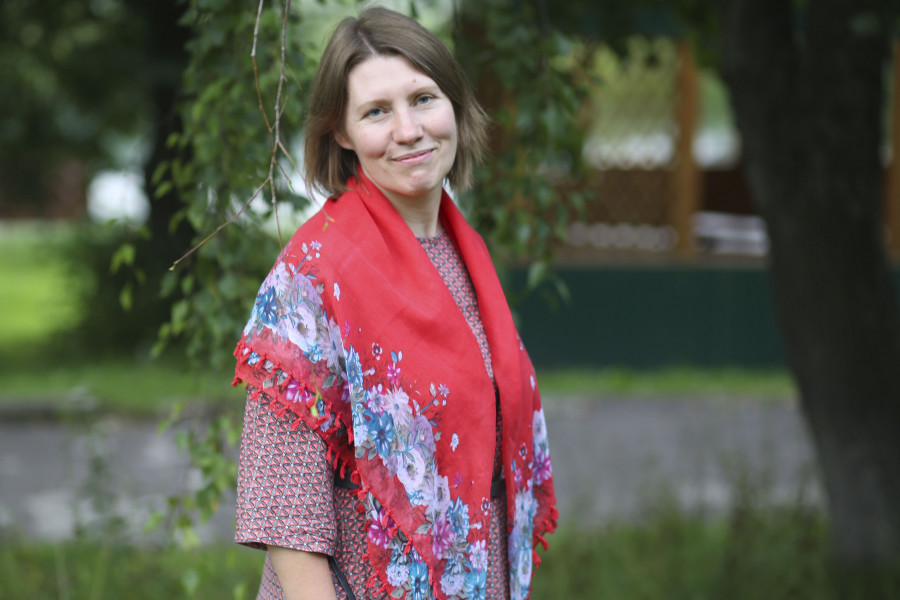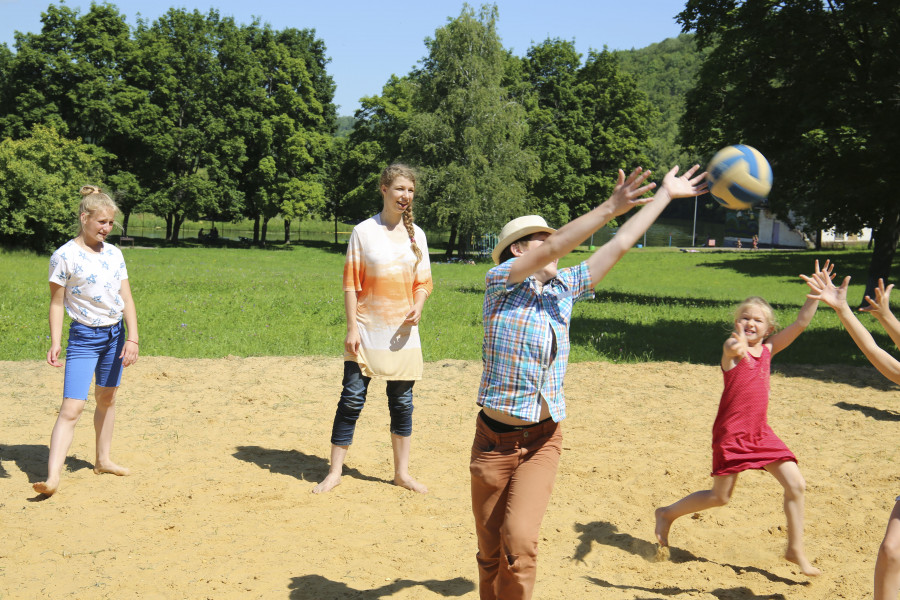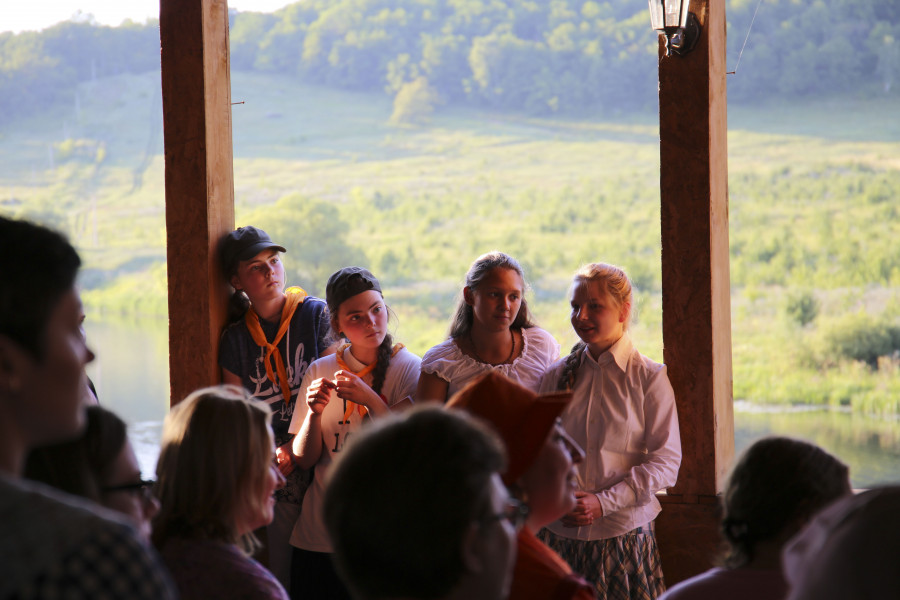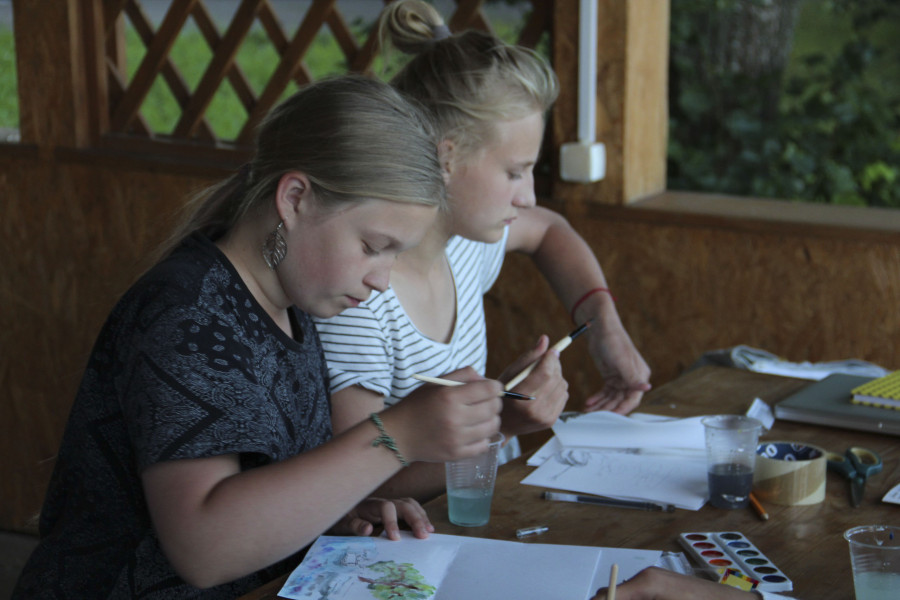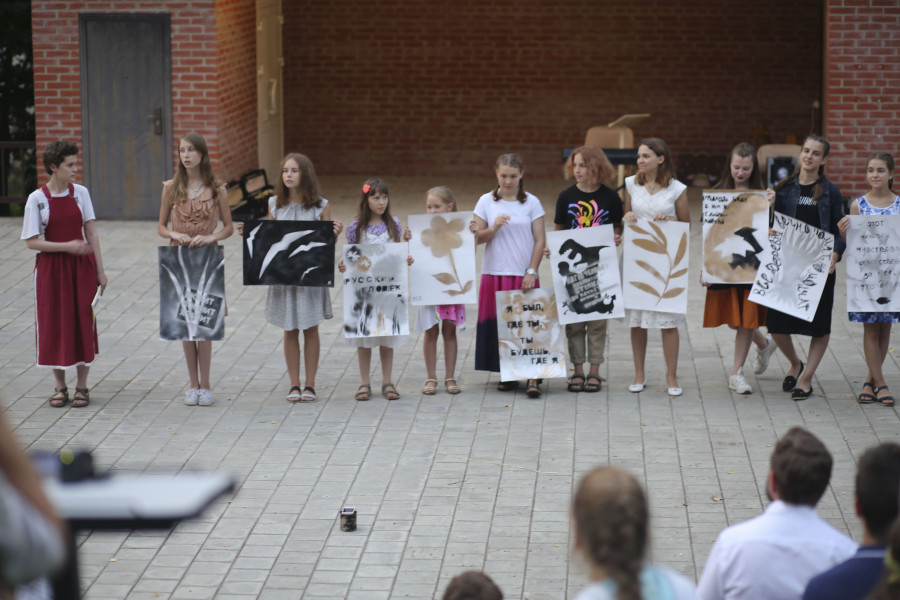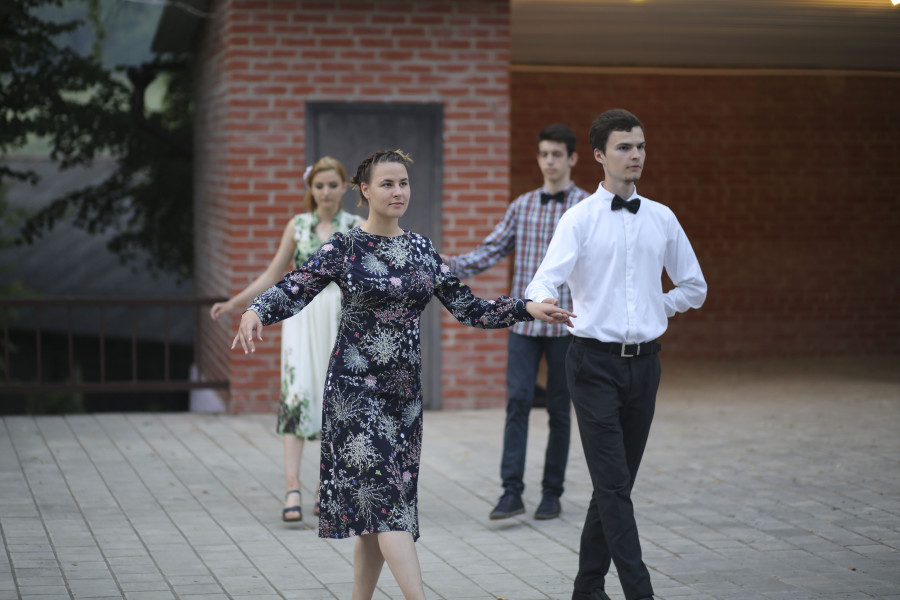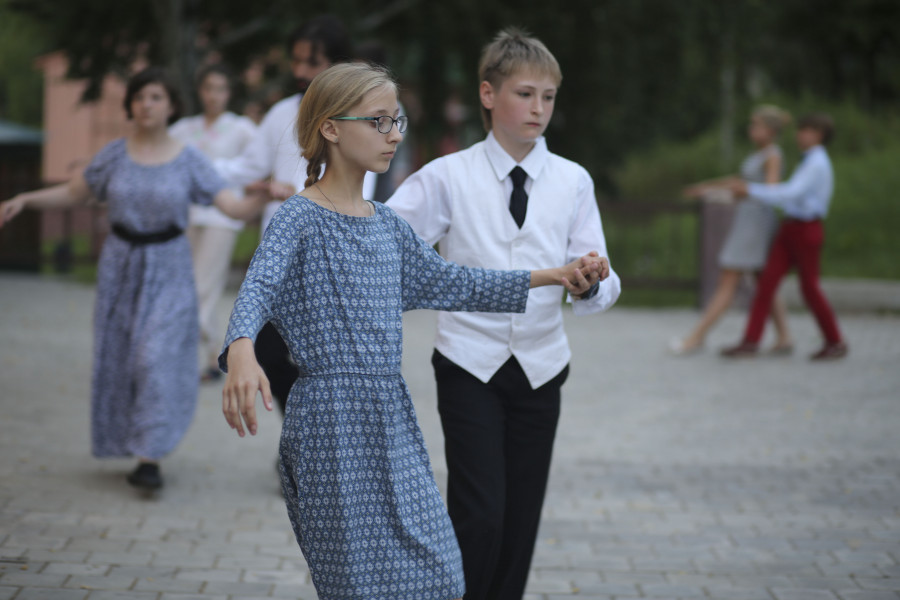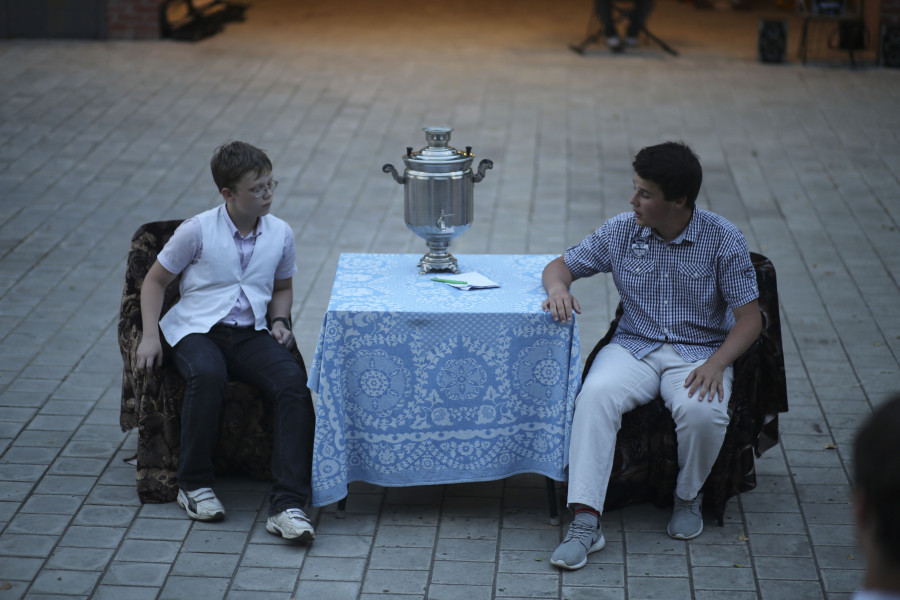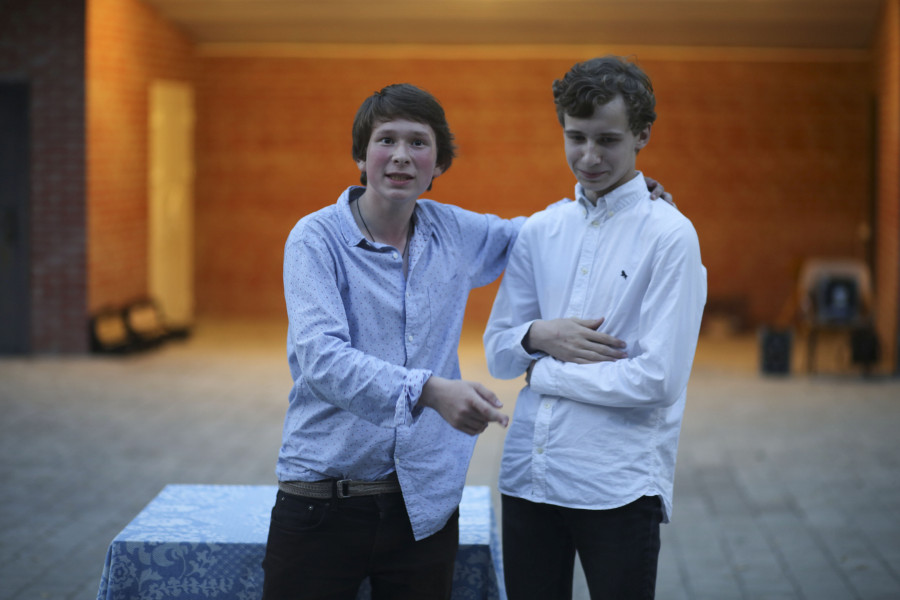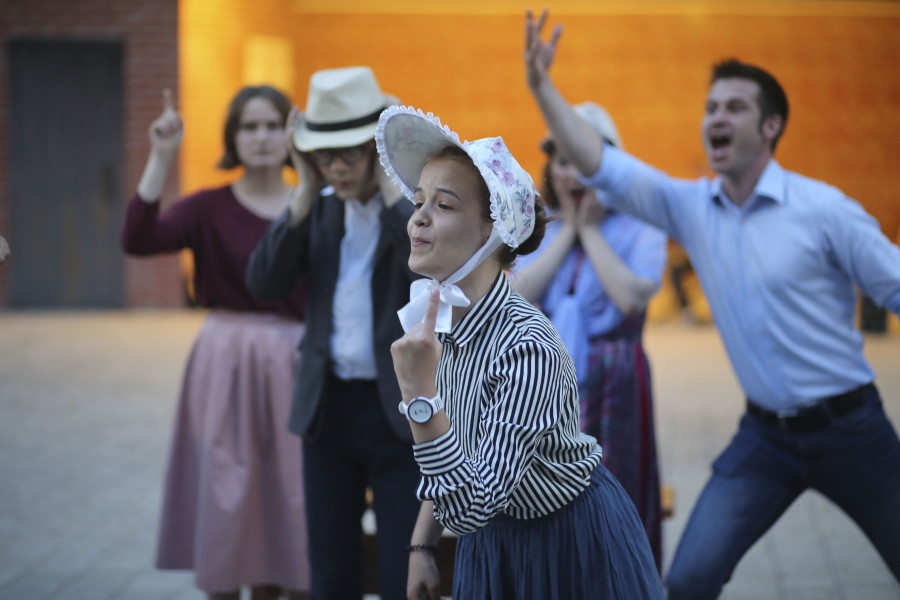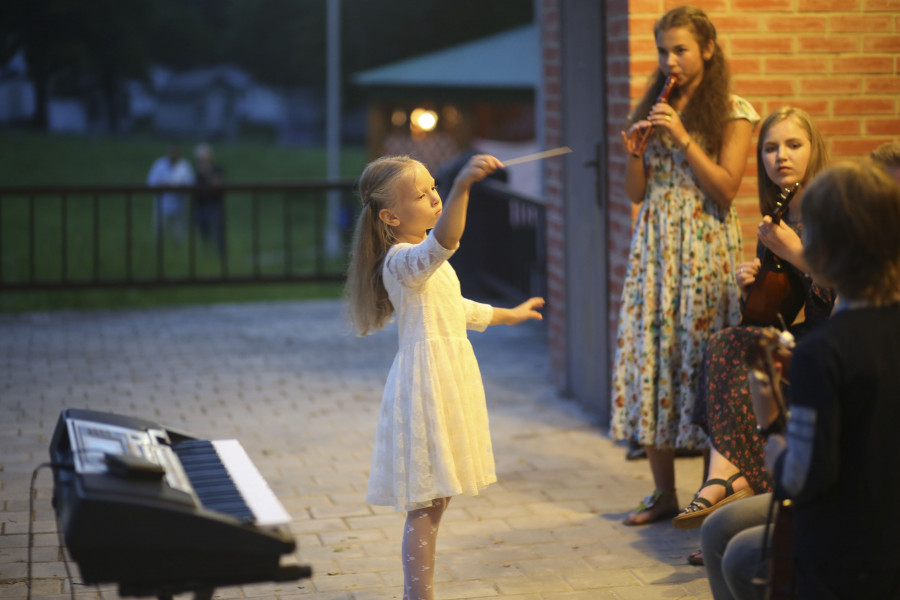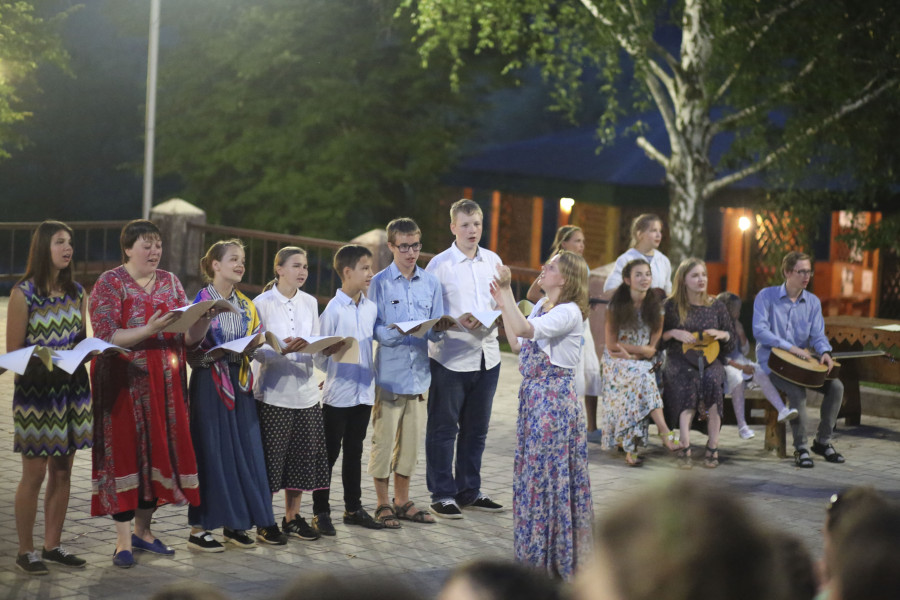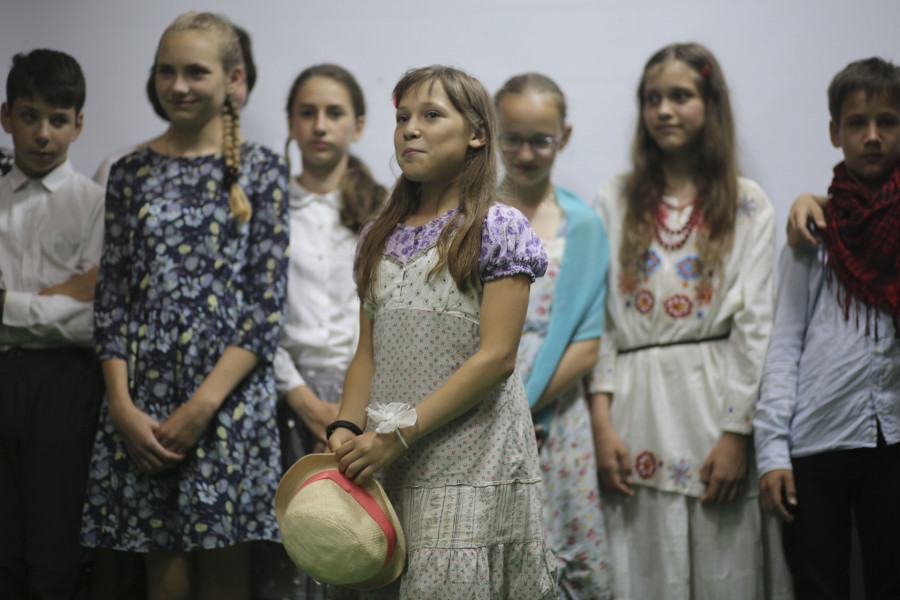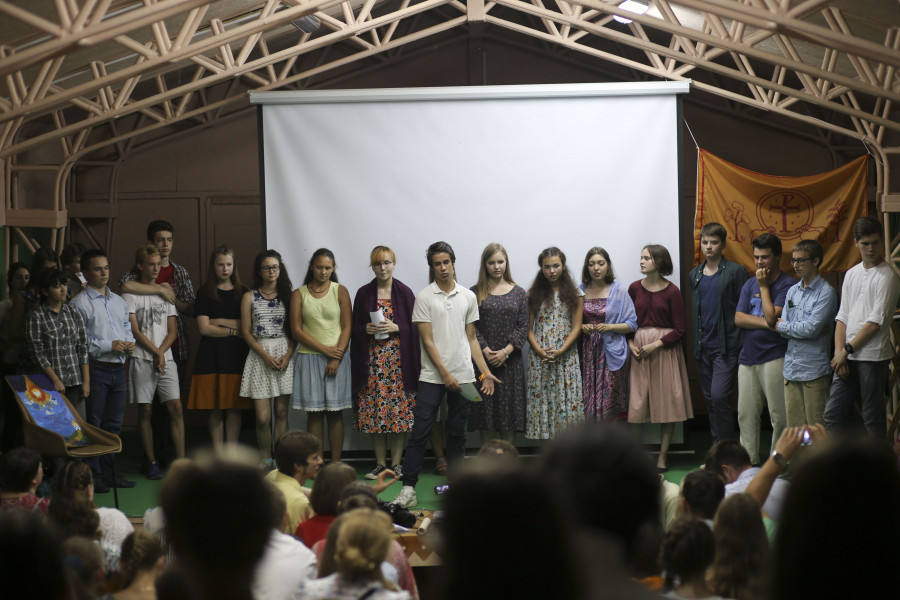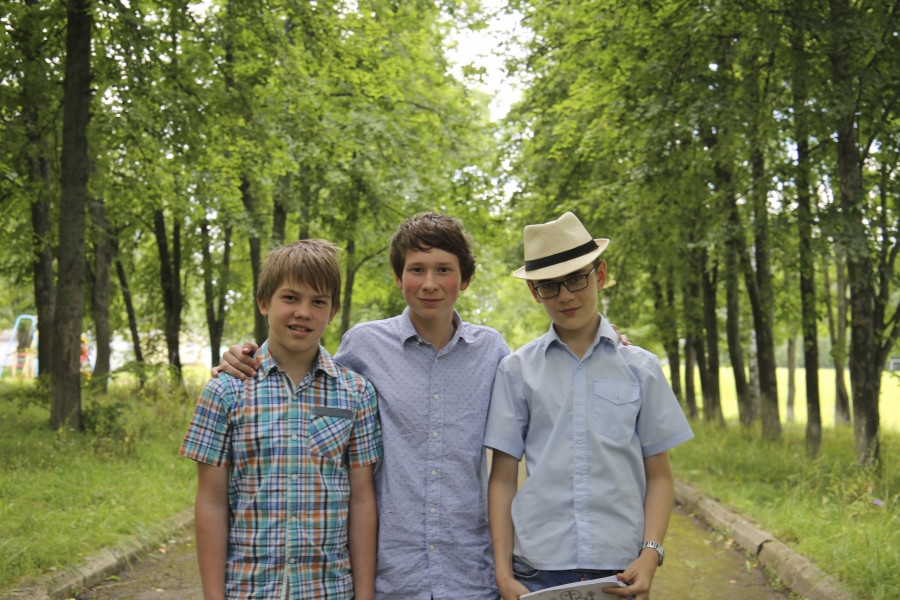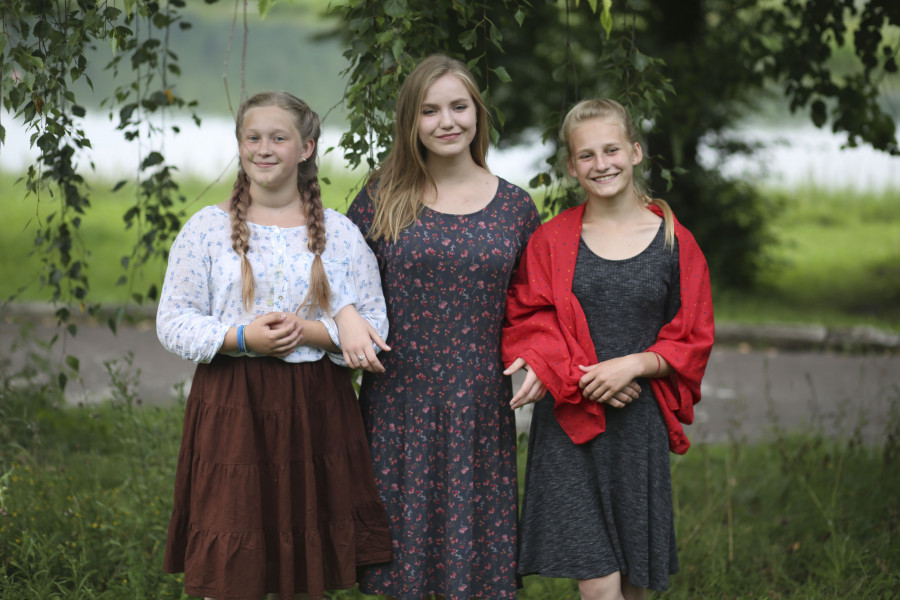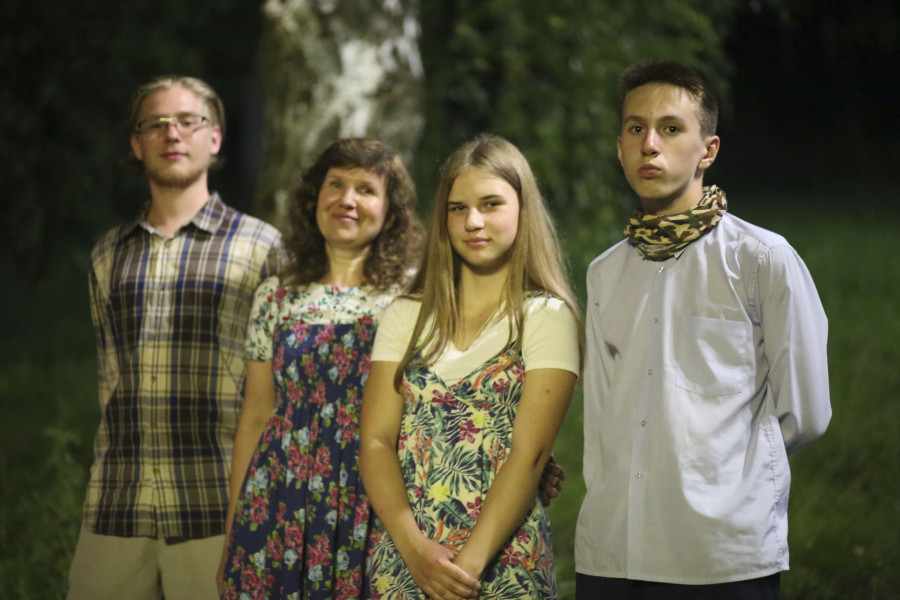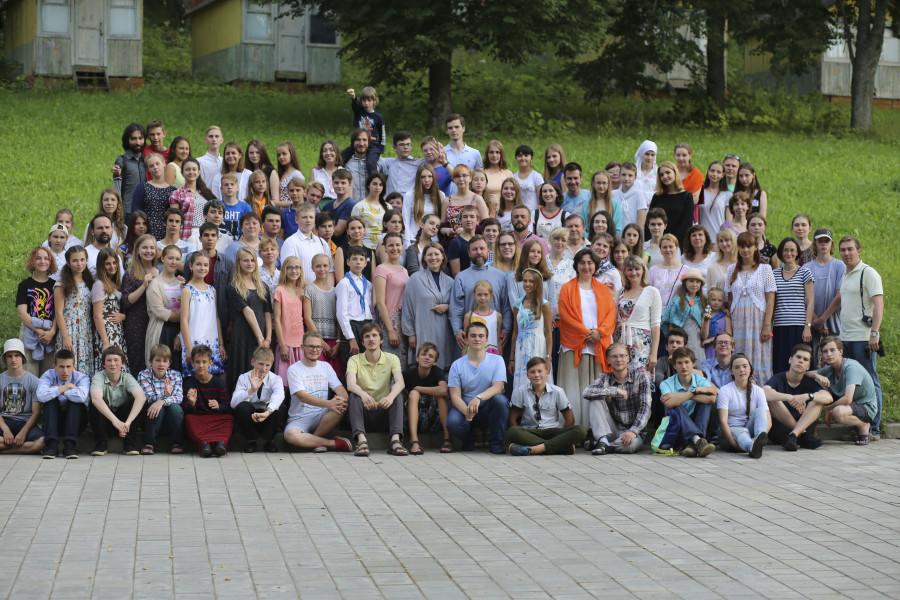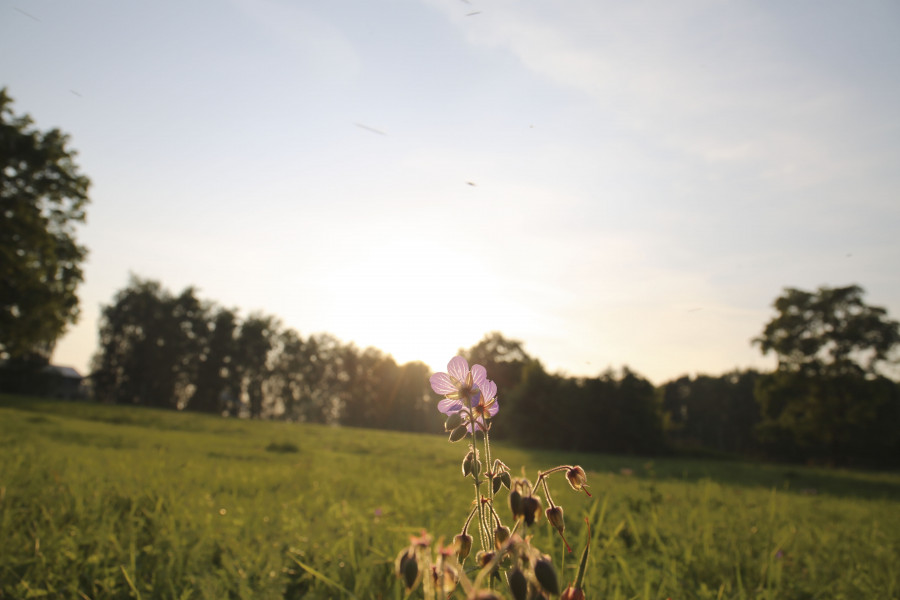Where can we find “the true Russian”?

Seventeen. Not 1917, but 2017. Memorable not only for the fact that it is precisely 100 years after the catastrophic Revolution that forever changed the face of Russia, but also because we have now, for seven years, been meeting together after our weekly expeditions, in order to share with each other the riches that we have gained through them. For the seventh year running, we have been searching for a “Russia” which we don’t ourselves know. This Russia is preserved in the back streets of our cities and villages, in our country’s vast expanses, and in our fellow countrymen.
This summer, the cities of Kargopol, Vologda, Kirillov, Kostroma, Yurevets, Kineshma, Ivanovo, Yaroslavl, Rybinsk, Nizhny Novgorod, Gorokhvets, Ryazanschina, Tambov, Michurinsk and Tula, were the objects of our careful observation.
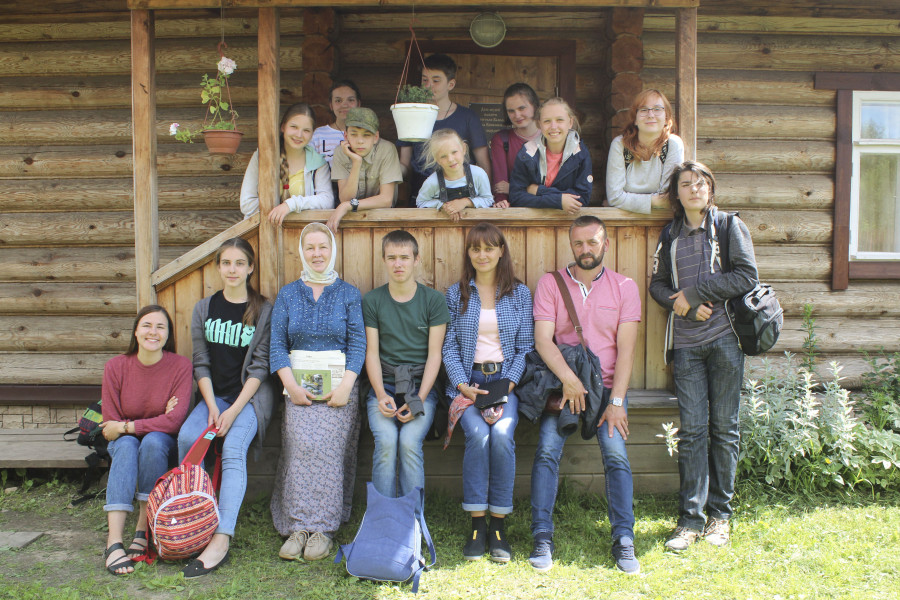
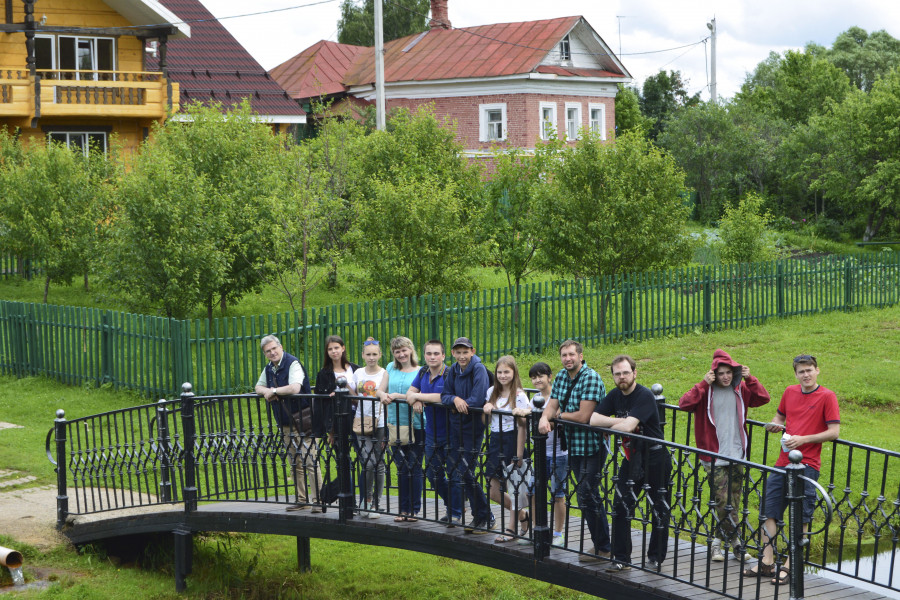
On our expeditions, we were in search of “the true Russian”, and we found ourselves having to look absolutely everywhere from museums and shops, to public transport, boats, public squares, underpasses and cemeteries. We learned about the outstanding citizens of these cities, whose examples we can use in our own lives. Some of the questions we focused on were: “were there and are there people worthy of respect in this city?”, “who wrote the city’s history and set its tone for life?”, “who should we pay our respects to here?”, “whom should we thank?”, “what do we remember of these people?”, “how do we keep their memory?”, “who is following in their footsteps and carrying on their work today?”
It was from this perspective that we were looking at our cities and countryside. We focused our attention primarily on manor houses and apartment buildings, monasteries and churches – the places where the lives of real people are preserved.
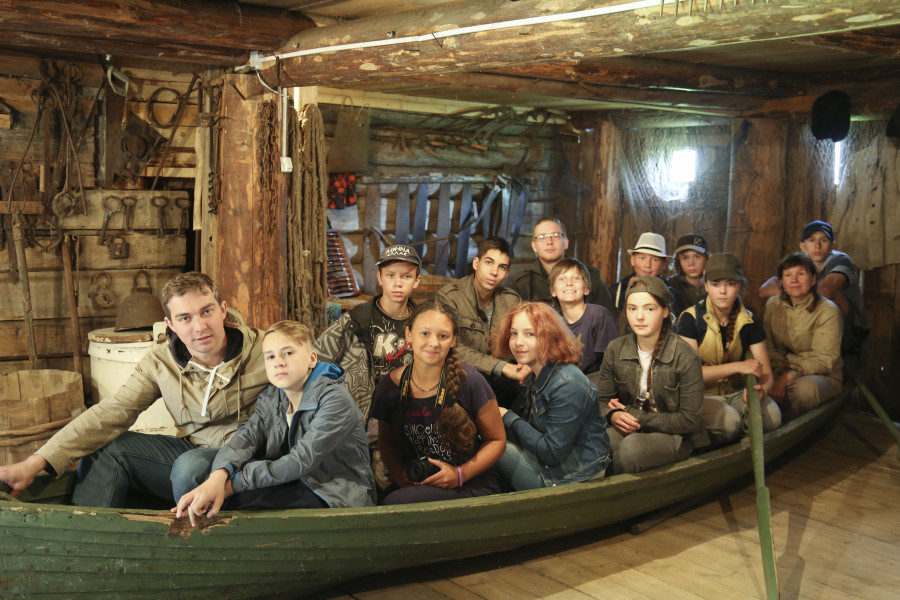
Cemeteries were a new focus for us this year, given that there, in particular, we can certainly find the memory of our forbearers. A cemetery, alas, easily becomes overgrown with grass and shrubs, and our memories sink into the ground, along with the concrete headstones set down during Soviet times – along with the buried cities and villages and those who lived there, who either don’t or can’t return…
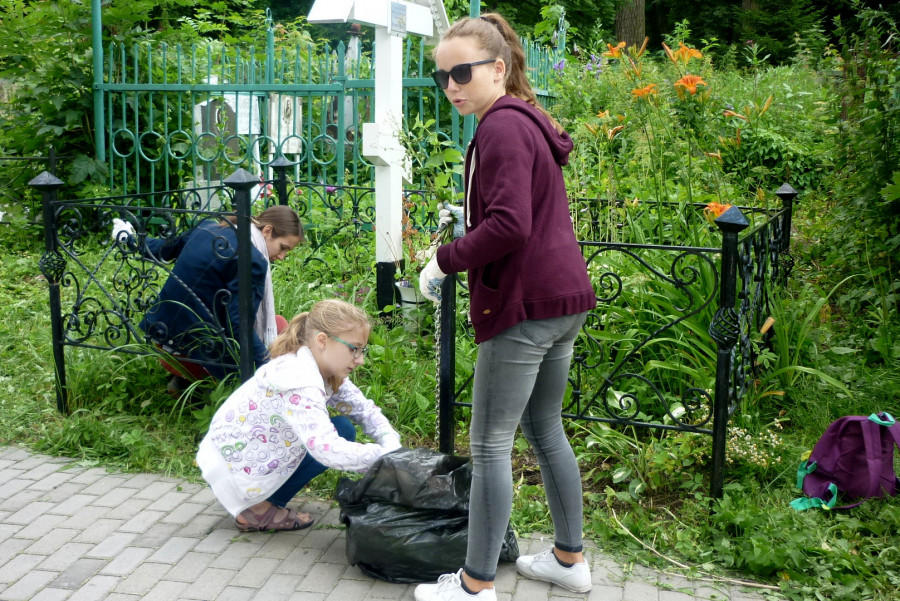
We tried – to the extent that we could – to support these memories at the old All Saints’ Cemetery in Tula, in the little town of Krapivna in the Tula Region, at the Galichsky Cemetery in Kostroma, at the Priklonsky-Rukavnishnikovy estate in the village of Zavrazhe in the Kostroma Region, and in the village of Pechnikovo in the Kargopolsky District.
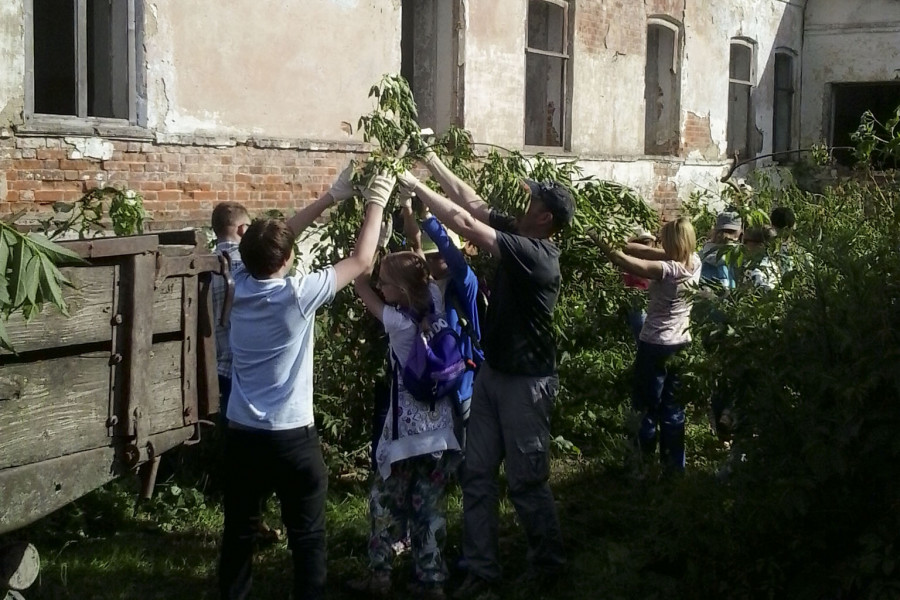
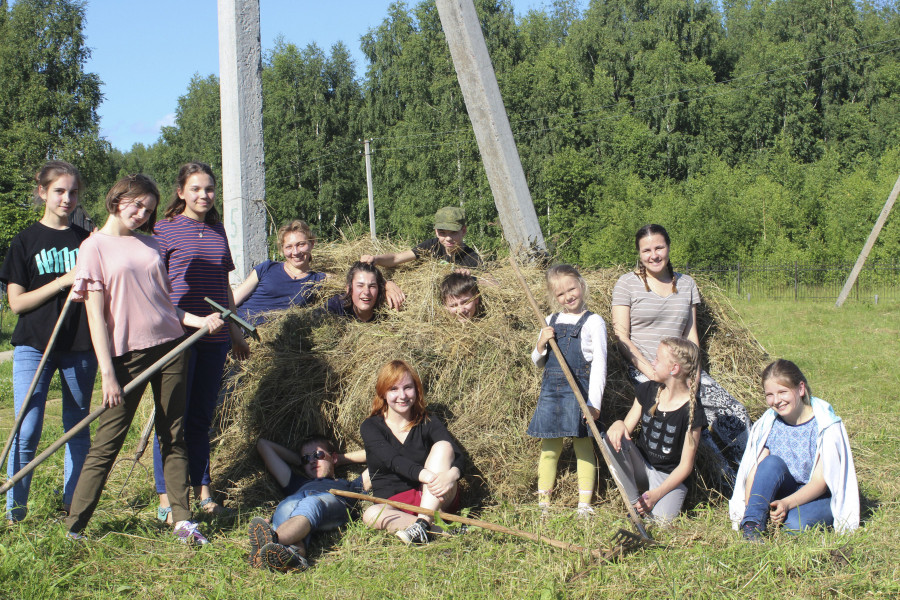
Some amazing people that we managed to meet along the way assisted us in our mission. These people have decided to counteract disintegration, collecting memories and traditions, piece by tiny piece; they shared with us, that which they had managed to save. In collecting his own family history, Oleg Valerevich Sazonov steadily changed from being an engineer, into the director of the local district museum in Michurinsk. In the town of Yurevts-Povolzhsky, Viktor Nikolayevich Pavlikov single-handedly restored the wooden house which had belonged to the forest industrialist V.I. Efimov. In the Nizhny-Novgorod Region, the Potravko family is undertaking the renovation of the Priklonsky-Rukavnishnikovy estate, with the goal not only of returning it to its former external glory, but also of returning to it the spirit of those people who lived there before the Revolution of 1917. In Kineshma, in the house were a community of nuns formerly lived, Svetlana Yurjevna Fokina has opened a museum dedicated to the memory of Confessor-Bishop Vasiliy Preobrazhensky of Kineshma. In the village of Davydovo, Fr. Vladimir Klimzo and his sister Alexandra opened a camp for children with various difficulties – volunteers often come to help them in their work. In the village of Zavrazhe, through the efforts of Tatyana Yakovlevna Lazareva, the church where Andrey Tarkovsky was baptized is being restored – that same village in the ancestral home of the Tarkovsky and Florovsky families; with the goal of preserving their heritage, Galina Alexandrovna Golubeva, the Director of the local boarding school in Zavrazhe, has opened a museum. Its not even possible to list all our meetings here.
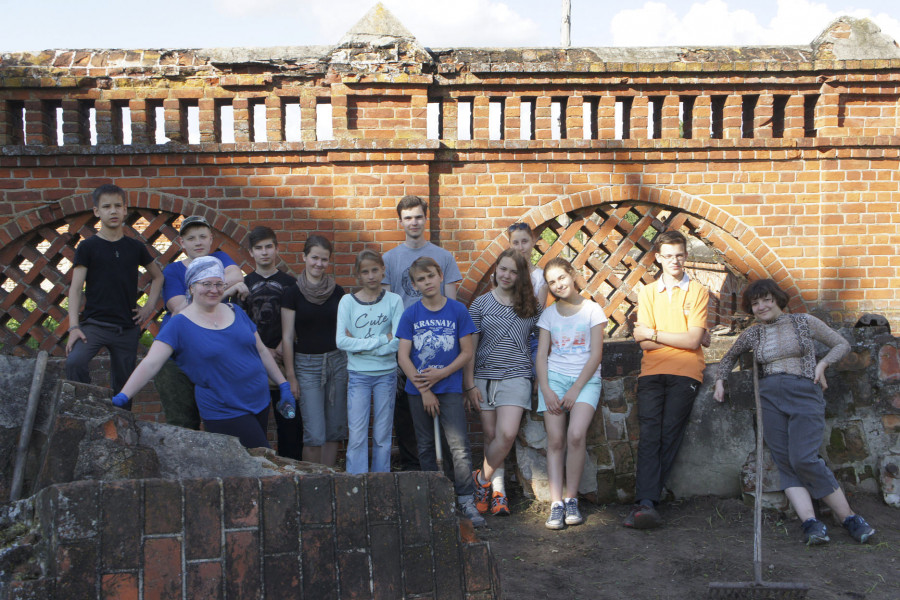
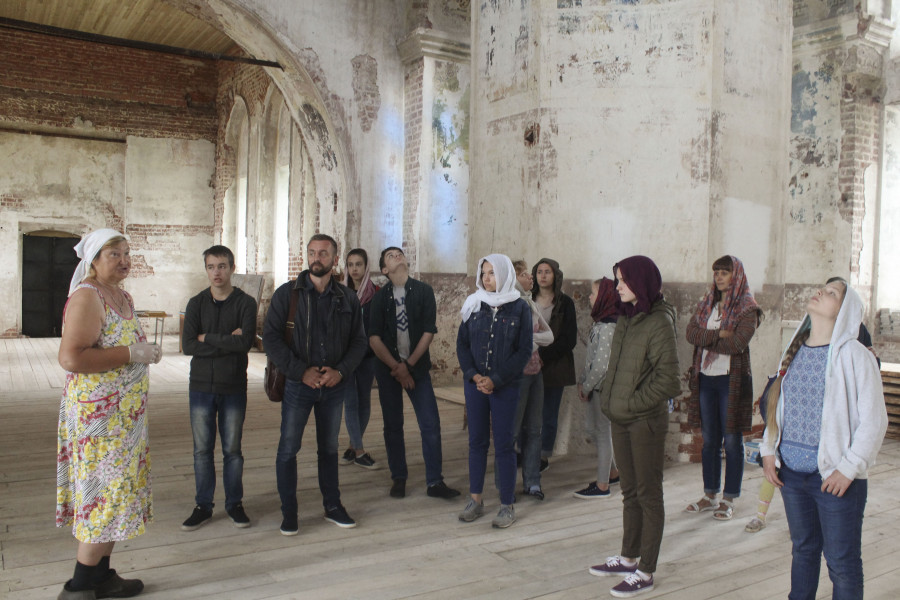
Our expeditions left us with all sorts of interesting material – we had only to think on them together and draw some conclusions from what we learned. Our traditional camp on the banks of the Krasivaja Mecha river, was the opportunity we needed to discuss, contemplate, and draw conclusions.
Contemplation of what we had seen and heard became material for our summer school this year. Our discussions with Vladimir Ilyich Lavrenov, Doctor of History and member of the Presidential Heraldry Commission, were an unquestionable highlight of the camp, because they enabled us to look at the facts from an unexpected perspective, which revealed new meaning. The examples that our outstanding fellow citizens provide causes us to think how we, too, can be part of the history of our country – it makes us think about how to work out our path and set our priorities. Do you, for instance, know why Mikhail Fedorovich Romanov, Grigory Alexandrovich Potemkin or Ivan Ivanovich Dibich are considered heroes in the Russian Federation?
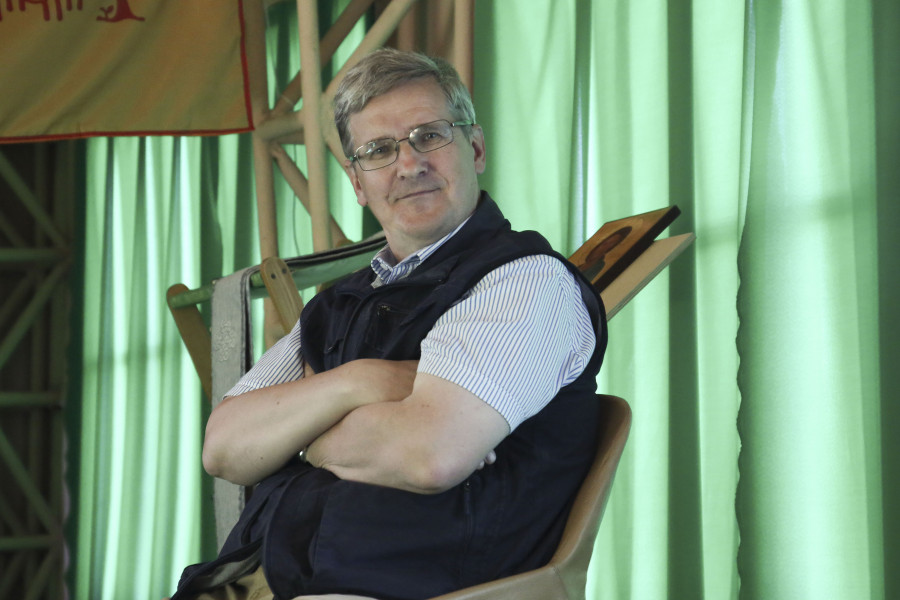
Our summer school this year was also filled with discussions about the Russian language. Yana Ruslanovna Pantueva, PhD, made some significant additions to our vocabularies, in the form of words from various dialects, appearing in the dictionaries of V.I. Dal and A.I. Solzhenitsyn – so you can’t use “zakhukary” or “gladyoxy” to frighten us any more! But we didn’t only discuss dialects; we focused also on how a language develops and how to take care of it, i.e. on the theme of a unified space for interrelating.

In the evening hours we went deep into science, delving into questions regarding the mystery of the hidden universe and artificial intelligence, with Maxim Ivanovich Zelnikov, a PhD in Mathematics and the physical sciences.
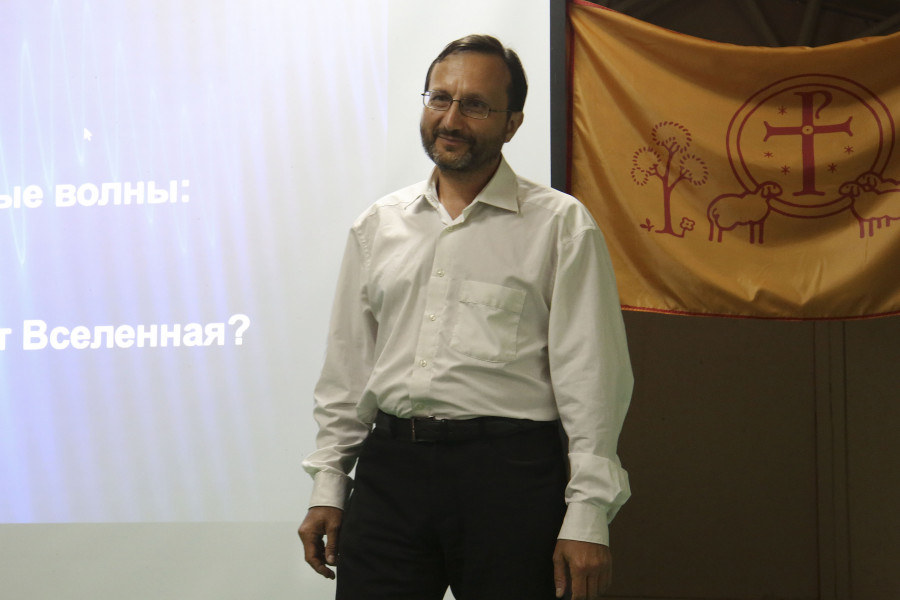
In addition to all of this, each of our campers could choose something close to his or her own heart as an activity to explore, whether it be learning the tones for church singing, drawing on wood, making a poster bearing an epitaph for a particular Russian person, playing the part of Chichikov from Gogol’s “Dead Souls”, or learning how to make a rocking horse. We had experts helping us in all these endeavors.
A concert in the restored palace of the Counts of Bobrinsk in Bogoroditsk, along with the presentations of the expedition findings of our various older and younger youth groups, became the centerpiece of our camp. We prepared for the concert both in the run-up to our expeditions, during the expeditions themselves, and during the course of the whole camp, in such a way as so the concert lived and breathed the music or our personal meetings!
Each youth group prepared a presentation about what they had managed to find during their trip, but however is it possible to communicate what has happened over the course of a week in only 15 minutes?! The Russian author Boris Shergin has a sketch the size of a whole novel, which was read in the evenings over the course of several weeks. In a folk context the story took on a life of its own: all that remains are the main characters and the main words – that which captures the mind – a story which is reduced to two hours in its retelling, but which has a real life of its own. In the retelling of our own stories, we all had to weave folk tales of this sort.
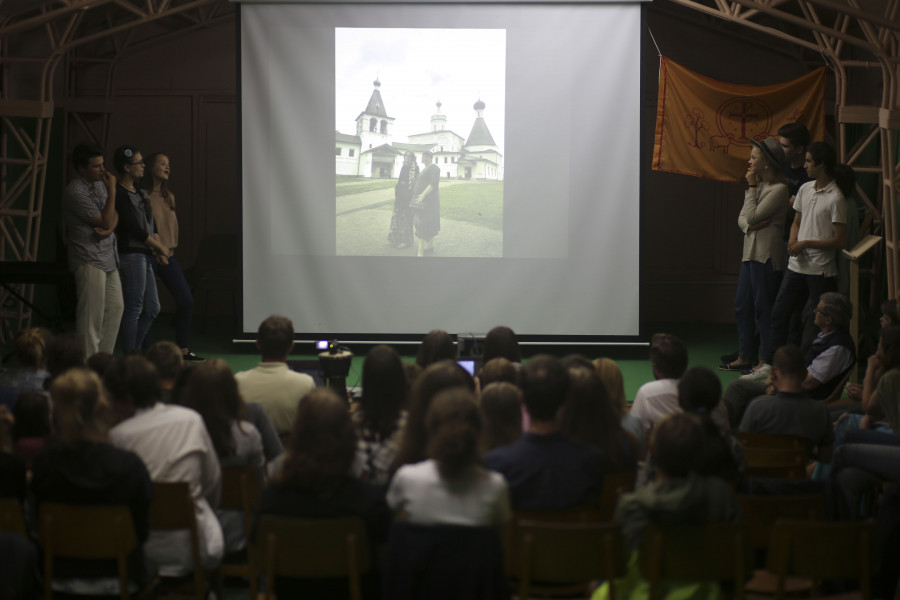
Vladimir Ilyich Lavrenov summarized the expeditions in the following way: “when we search for the hidden and mysterious “true Russian”, we find him in ourselves. To be a Russian is to be in a state of continual search, which is something that happens when a person is dissatisfied with life – in a good sense. It’s necessary to search, to be in motion, to find role models – because without role models it is impossible to live. We have to push the boundaries of our acquaintance ever wider. Ever one of our expeditions saw that there is life in our country, and this life needs to be encouraged. We need to find the basis for and examples of this life – that which will inspire us to create more of this life ourselves.”
Our summer camp enabled us not only to come together and live with one another for this time, but to participate in common creation through workshops, to learn to value our own and our neighbors’ time, to hone our speech, and recalibrate our actions. All of this grew in to the Festival which we held on the last day of camp. Different workshops came together like one big mosaic – into an evening concert with singing, dancing, theatre pieces and an exhibition. All of this bore witness to the fact that common work really bears fruit, multiplies our strength and brings us joy.
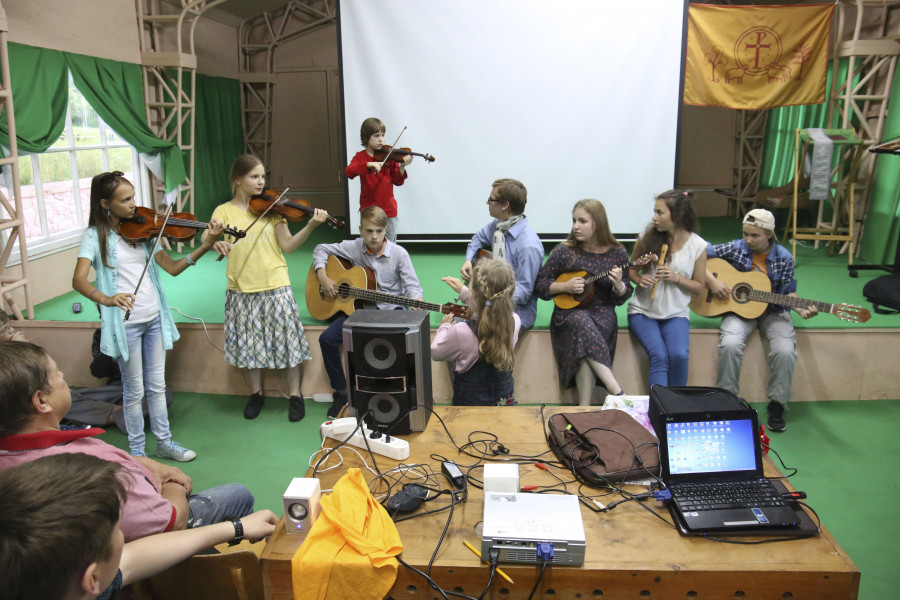
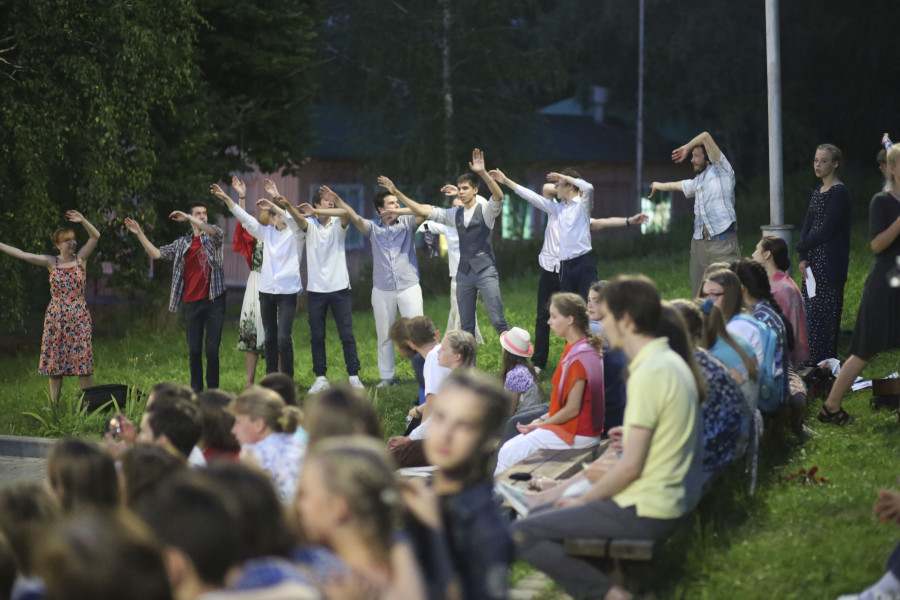
Over the course of our expeditions and the camp, all of us learned much that was new, that we can now share with our friends and acquaintances, as well as with random people who happen to cross our paths. In doing so, we’ll be showing ourselves to be true Russians – able, handy, searching, bright and quick, full of energy, and far from asleep – people who sit beautifully, walk beautifully and speak beautifully.
Anastasia Faronova
Photos: Andrey Podorov, Vyacheslav Kulikov and other young people from the Transfiguration Brotherhood.
